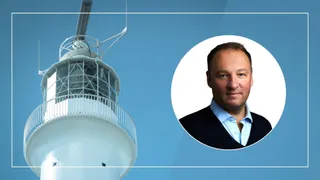
The trio of opportunity: Reinsurance, insurance and MGAs
Bermuda remains a steadfast reinsurance hub. Yet, Chris Bonard, CEO of Price Forbes Re, sees change on the horizon as the insurance and MGA sectors evolve—making Bermuda more diverse than ever.
Bermuda has long been synonymous with complex risk. It laid the groundwork for innovation in insurance-linked securities (ILS) and capital management, and today stands as the leading global hub for reinsurance. But according to Chris Bonard, CEO of Price Forbes Re, the tide is shifting, with growing expectations for the continued growth of property and casualty (P&C) insurance.
Speaking exclusively to Bermuda:Re+ILS ahead of the conference and renewals season, Bonard shared his perspective on Bermuda’s enduring role as an industry anchor—and his vision for what lies ahead.
“Bermuda encompasses the full spectrum — from insurance to reinsurance, to capital and capital management. As long as it retains that breadth, it will always keep its place as an innovation hub. “Where I’m seeing the most dramatic change — and where I believe we’ve contributed — is on the insurance side, particularly in introducing a broader diversity of risk to the island.”
For the first time in a long time, we are seeing a far broader offering out of Bermuda than there ever was before. When we first arrived in 2019, the island still largely leaned toward major Reinsurance transactions – that hasn’t changed, but in our six years we’ve seen the island’s offering broadening – a trend which is accelerating rapidly”.
A shifting landscape
Looking at the impact of this uptake in insurance, Bonard explained that he sees a shift to more of an upper middle market accounts on the P&C side. This has “resulted in a big influx of large, independent distributors from the US coming to Bermuda, the likes of the major wholesalers and retailers outside of the main alphabet houses. And we are seeing a push to specialty business, which we weren't seeing as much in the past.”
Historically, many of these major independent US retailers and wholesalers hadn’t accessed Bermuda in a meaningful way, despite being among the largest global risk distribution groups. That’s changing quickly. According to Bonard, their presence on the island is strategic, and they’re looking to engage through trusted international partners.
Commenting on the rise in specialty business, Bonard observed: “The truth is, everyone’s looking to diversify.” Lines seeing increased activity include marine and energy — though he acknowledged the limited size of those markets — as well as core property and casualty, and specialty professional lines such as directors and officers.
Looking ahead, Bonard anticipates structural changes that could reshape Bermuda’s capital flows in the coming years. Notably, he sees the island becoming more conducive to business models that have traditionally been less common there. “I think we’ll see more MGAs starting up in Bermuda. A few years ago, there was no regulation around MGAs—but now there is,” he explained, adding that this opens a new channel for market participants.
For Bonard, the implications are clear. These regulatory developments could attract more investors and diversify the types of capital entering Bermuda’s marketplace. “I think this will boost capital for the island because it can now come in through different vehicles,” he said. In his view, this diversification — both in business models and funding structures — will further reinforce Bermuda’s position as a competitive and adaptable global insurance hub.
A metamorphic market
Bonard took a moment to outline the shifts he’s observed in the industry, noting how the traditional boundaries between reinsurance and insurance have blurred in recent years. “Generally speaking,” Bonard explained, “what we’re seeing is carriers that had only ever written reinsurance now dabbling in insurance, and carriers that had always relied on the London market to write their insurance are now doing so on the Island.”
According to him, this isn’t a small or isolated change — it reflects a broader transformation in how companies are positioning themselves. “With this, we’re seeing a notable influx of carriers entering insurance classes they previously only wrote reinsurance for. At the same time, companies that were writing insurance are moving down the food chain into more middle market and specialty classes.”
Shifting the conversation toward his personal experience, Bonard reflected on how the market’s composition has evolved since he moved to Bermuda in 2019. He noted that his arrival coincided with a period of market concentration. “We now have a greater diversity of brokers in Bermuda,” he said. “We were early adopters in coming down here to build it out. Back then, 80% of the island’s revenue was dominated by the big three — that’s changed dramatically. Everyone’s represented here now.”
Looking ahead, Bonard suggested Bermuda’s market identity is undergoing a subtle but important shift. “Bermuda used to be what I would call a hard market safe harbour,” he observed, “but now I see it evolving to be more diversified.” For him, this points to a future where Bermuda won’t just react to market cycles but will maintain momentum across different conditions.
Time to adapt
Speaking about the company’s forward-looking strategy, Bonard emphasised that they are not standing still in the face of market change. “We are preparing for this landscape shift with a lot of investment capabilities,” he said, noting that adaptability will be key in the years ahead. While technology and capital are important, he was quick to point out that the industry still runs on human connection. “We are fundamentally still a relationship business. It’s about how we bring our tools to bear.”
For Bonard, this means spending significant time with clients to build a deep understanding of their needs. “We spend a lot of time with our customers, trying to understand what keeps them awake at night, what their business plans are, so we can adjust what we offer to them,” he explained. That responsiveness goes beyond problem-solving — it’s also about helping clients seize new opportunities. “If a company wants to get into a new area, how do we help them get there? It might mean leveraging the Ardonagh Group to trade where they haven’t before, all the way through to raising capital for companies.”
Turning to recent trends, Bonard highlighted a notable shift in interest from across the Atlantic. “There is definitely interest from the US E&S market to have a bigger position in Bermuda than in the past,” he observed. This momentum is being driven by evolving structures and new market vehicles. “A lot of that is now coming through MGA’s or bifurcated MGA’s.”
His team has been actively shaping how these models take root on the island. “We’ve been working on bringing MGAs to Bermuda, wrapping them into reinsurance structures, bringing third-party capital using sidecars as risk vehicles,” Bonard said. In the past, such activity was rare. “You didn’t see much of that in the Bermuda market, bar a few carriers. We’re beginning to make that more mainstream.”
Will Bermuda stand strong?
When discussing Bermuda’s standing on the global stage, Bonard didn’t hesitate to underline its resilience. “Bermuda’s position in reinsurance is very, very strong,” he said.
For him, one of the island’s core strengths lies in its governance. “The key thing that works in Bermuda is the regulator — the BMA is strong, while still allowing things to be done at pace,” he explained. That balance between oversight and agility has helped Bermuda hold its ground against major global hubs. “Bermuda stands strong against other global hubs such as London and Singapore due to its regulations.”
Yet regulatory strength is only part of the equation. Geography has played its own quiet but decisive role in the island’s success. “Its geographical location has been a strategic label for a long time,” Bonard noted. “It’s referred to as a lily pond between London and the US. It’s just an hour from New York, close to Miami, and direct to London.” That ease of travel, he suggested, helps make Bermuda a natural meeting point for decision-makers from across continents.
But beyond the rules and the routes, there’s the human element — the community of industry leaders who have chosen to base themselves on the island. “More importantly, you’ve got access to decision-makers down here,” Bonard said. He recalled his early days in Bermuda: “When I moved here in 2019, it immediately felt like trading on the floor in Lloyd’s in my 30s — a good buzz of a marketplace.”
That atmosphere is no accident. It stems from the concentration of high-level talent and leadership on the island. “We’ve got huge C-suite capabilities — there are a lot of CEOs here — so you get very good access to decision-makers,” he added. And while there may be no physical trading pit like in London’s past, the energy is palpable. “There’s no actual central trading floor, but the island feels like one.”
Did you get value from this story? Sign up to our free daily newsletters and get stories like this sent straight to your inbox.

